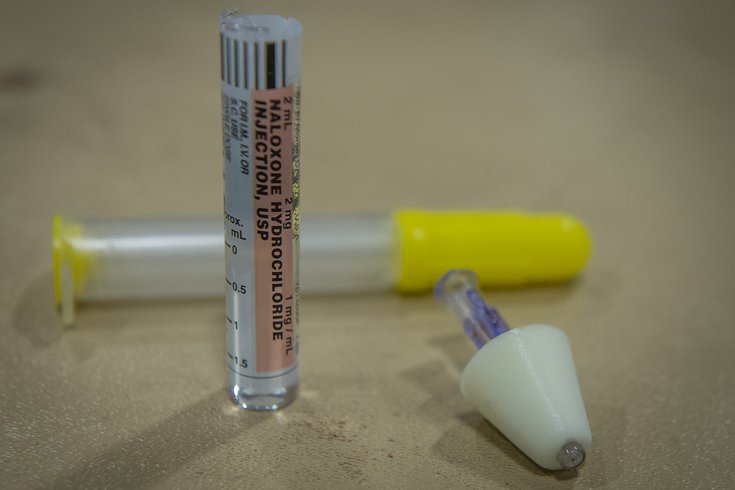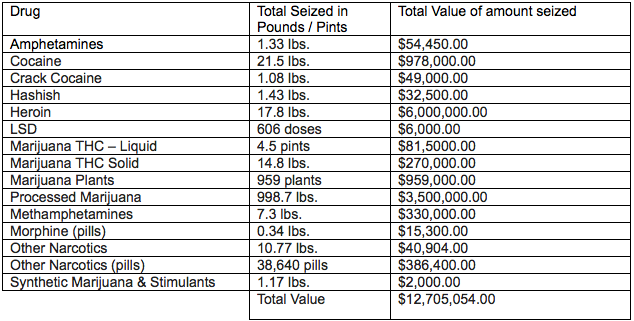
July 20, 2016
 Bryan Woolston/For PhillyVoice
Bryan Woolston/For PhillyVoice
Families gather to learn how to rescue their addicted loved ones
Pennsylvania State Police on Wednesday released updated second quarter numbers on statewide prohibited drug seizures, revealing a likely decline in 2016 weight and value compared to the previous year.
In 2015, state police seized more than $118 million in prohibited drugs, which was an increase over the haul in 2014. Last year's total included 11.61 kilograms of heroin valued at $8.7 million. Another 449 kilograms of marijuana valued at $2.9 million and 20.6 kilograms of cocaine valued at $2.06 million.
While state police numbers are not entirely reflective of seizures across all Pennsylvania and federal law enforcement agencies, the numbers in 2016 appear to be down from last year at the midway point. In April, state police announced they had seized more than $19 million in prohibited drugs in the first quarter, including 25 pounds of heroin valued at $8.64 million.
In the second quarter, the number fell to $12 million, again led by 17 pounds of heroin worth $6 million.
Q2 2016 PSP drug seizures.
A call to the Pennsylvania State Police for comment on the trend was not immediately returned.
Drug overdose deaths increased dramatically in Pennsylvania last year, according to a DEA analysis released last week. Pennsylvania counties reported 3,383 drug-related overdose deaths in 2015, up from 2,742 deaths reported in 2014. Heroin or at least one opioid was reported in 81 percent of those fatalities.
Since his inauguration, last January, Governor Tom Wolf and hard-hit municipalities have made a concerted effort to combat opioid addiction.
Related Article: In Philly neighborhood with drug problem, children play in the streets again
Last week, Pennsylvania received a nearly $3 million grant to double the number of primary care physicians delivering opioid addiction care in the state. Representatives from Philadelphia will also join state officials in a five-year national initiative designed to battle the heroin and opioid epidemic.
This week, the Wolf administration recommended a new set of guidelines for prescribing opioids, which have been used at alarming rates even following low-risk surgeries, according to a recent study led by researchers at the University of Pennsylvania.
“By reducing the pattern of overprescribing painkillers that have such a high risk for abuse, we are fighting back against opioid abuse and heroin use before those habits even begin," Wolf said. “I urge all state medical boards to accept these guidelines."
 Source/Pennsylvania State Police
Source/Pennsylvania State Police